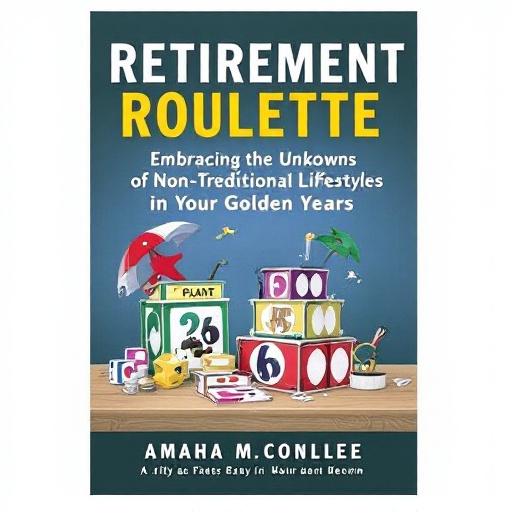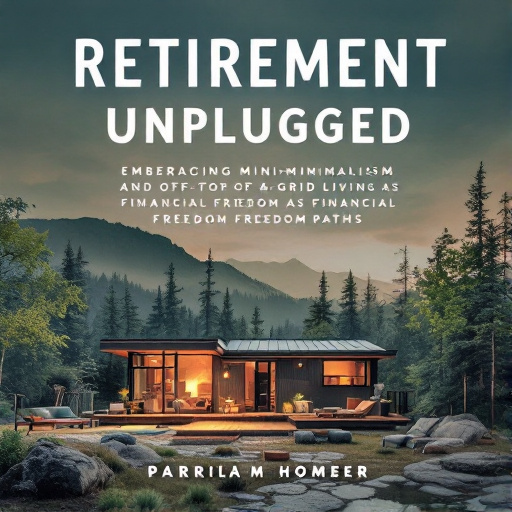Featured Articles
- "Beyond Savings: How Gardening and Hobbies Can Transform Your Retirement Plans"
- Reimagining Retirement: How Virtual Reality Could Transform Senior Living and Financial Independence
- "Rethinking Retirement: How Eco-Friendly Living Is Shaping Future Financial Planning"
- Retire in Style: Exploring the Rise of Sustainable Living Communities for Seniors
- "Retirement Reimagined: How Eco-Conscious Living is Shaping Future Financial Landscapes"
"Retirement Reimagined: How Eco-Conscious Living is Shaping Future Financial Landscapes"
"Retirement Reimagined: How Eco-Conscious Living is Shaping Future Financial Landscapes"
Retirement is evolving, reshaping not just how we view the golden years, but also how eco-conscious living is redefining our financial futures. This article delves into the intersections of sustainable living, investment strategies, and lifestyle shifts that are paving the way for a greener retirement plan.
The New Age of Eco-Consciousness
Once upon a time, retirement meant turning in your briefcase and kicking back to watch reruns of your favorite show. Today, however, eco-conscious living has inserted itself into the retirement lexicon, and it’s not just a passing trend. As our planet faces escalating environmental challenges, the push towards sustainability has seeped into all facets of life, including how we save for and enjoy retirement.
Statistics Speak Volumes
According to a 2020 study by the Stanford Center for Longevity, nearly 75% of individuals in the Generation Z demographic prioritize sustainable living choices. This younger generation isn't just thinking about retirement in terms of financial security but also how their choices impact the planet. Interestingly, nearly 65% of people aged 50 and over expressed concern about the environment, showcasing that eco-consciousness does not discriminate by age (Source: Pew Research Center).
Reimagining Spaces
Let’s add a sprinkle of creativity here: picture this. You’re retiring to a quaint cottage on the outskirts of a lush forest, growing your own vegetables, and generating your own power with solar panels. Sounds dreamy, right? The trend toward tiny houses and eco-villages is gaining traction, particularly among millennials and Gen Z, drawn to the benefits of living smaller and greener. In fact, the tiny house movement has grown by 30% since 2010 (Source: American Tiny House Association). It offers an eco-friendly lifestyle while significantly reducing living expenses, such as mortgage or rent payments.
Investment in Green Technology
Let’s talk about green investments. As traditional investment vehicles are being reconsidered, sustainable funds are on the rise. According to Morningstar, sustainable funds attracted a record $51 billion in net new assets in 2020 alone, indicating a growing trend that won't be slowing down any time soon. People want their investments to reflect their values, and funds focusing on decarbonization, clean energy, and sustainable agriculture are now more appealing than ever.
Case Study: The Eco-Conscious Retiree
Take the story of Susan, a 68-year-old retired teacher from Santa Barbara. After retiring, she decided to convert her backyard into an eco-friendly garden. Not only did she grow her own food, saving money and eating healthier, but she also sold excess produce at local farmers' markets. This not only provided supplemental income but also fostered a sense of community. Susan embodies how eco-conscious living can transform retirement into a rewarding venture.
Eco-Friendly Travel: A New Adventure
Let’s face it, retirement should be filled with fun adventures—ideally ones that don’t harm the planet. More retirees are choosing eco-tourism as their way to explore the world—hiking in national parks, taking wildlife safaris, or volunteering for conservation projects. With tourism expected to rise as COVID-19 restrictions ease, the ecological footprint of travel will become an increasing concern.
Notably, studies indicate that about 70% of travelers are willing to pay more for sustainable travel options (Source: Booking.com). So, as you sip your organic fair-trade coffee in Costa Rica, know that you’re not just unwinding but also making a positive impact.
Frugality Meets Sustainability
You may have heard, “Save today; enjoy tomorrow!” But what if that saving could also save the planet? Eco-conscious living does not necessarily mean luxurious, nor should it. Frugal retirement can involve practices such as DIY home repairs, buying second-hand, and taking advantage of community resources. These not only cut costs but are also gentle on Mother Earth.
The Future is Bright, and Green
As we contemplate our financial landscapes for retirement, the importance of being eco-conscious should not be swept aside. Sustainability isn’t merely a buzzword; it’s a requisite for the planet's health and our own financial well-being. Many financial advisors now include sustainable investments as a critical element of a diversified portfolio.
Financial Impact of Going Green
Surveys indicate that the average American household spends roughly $3,000 on energy annually. By utilizing energy-efficient appliances and renewable energy sources, households can significantly reduce that cost—an attractive prospect for retirees on fixed incomes. More than just reducing bills, creating a sustainable home can also increase its market value. A recent study found that homes with energy-efficient features can sell for about 3-5% more than traditional homes (Source: National Association of Realtors).
Your Health and well-being
Let’s not forget the health benefits of eco-living. Engaging in outdoor activities, gardening, or just taking a mindful stroll through nature not only helps combat the sedentary lifestyle often found in retirement but also enhances mental well-being. Science backs this too; studies show that spending time in nature can reduce anxiety levels and improve overall mood and cognitive function (Source: Environmental Science & Technology).
Barriers to Sustainable Retirement
While the prospects are alluring, there are hurdles to overcome. Many retirees feel overwhelmed by the idea of transitioning to sustainable living, especially if they have lived traditionally for decades. It’s important to remember that you don’t have to change everything at once. Start small: a single solar panel, a compost bin, or even planting a few herbs can be the first steps toward a richer, greener retirement.
A Call to Action
It’s clear that eco-conscious living will shape future financial landscapes in retirement. The choices we make today regarding our environment will set the stage for generations to come. As we embark on this journey towards more sustainable lifestyles, let’s empower ourselves by making informed decisions that prioritize not just our finances but also the health of our planet.
Conclusion: A Sustainable Legacy
In conclusion, eco-conscious living is more than just a retirement trend; it’s a new way of thinking that binds our financial, ecological, and personal goals. Whether you're an 18-year-old just entering the workforce or a 70-year-old looking for fulfilling retirement experiences, the principles of sustainable living can lead to a more enriching life—one filled with adventure, community, and purpose. Imagine yourself in a future where you didn’t just save for retirement but also saved the planet. How about that?




